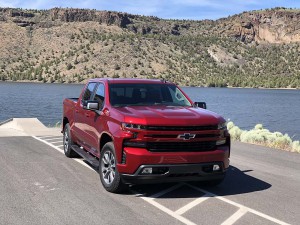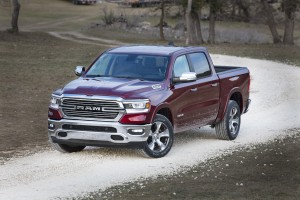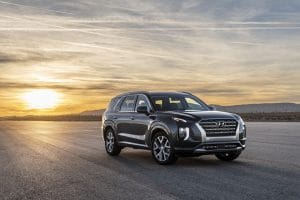
Strong truck sales were estimated to carry General Motors to a sales gain in July, according to analysts.
Sales of new vehicles held their own during July with help from cuts in interest rates and increased marketing efforts by carmakers, that are finding it more difficult to gain ground.
Nevertheless, Toyota, Honda, Subaru and Hyundai all posted modest gains. Detroit’s automakers, General Motors, Ford and Fiat Chrysler, no longer report monthly sales totals. However, analysts estimated that both GM and FCA also posted sales increased during the month on the strength of truck sales.
Ford’s early decision to abandon the passenger car market continues to slice into the company’s sales totals, according to estimates from J.D. Power as well as Cox Automotive.
(GM Blows Through Forecasts With Q2 Earnings)
Hyundai Motor America, though, reported a 12% increase in comparison with July 2018 and the 12th straight month of increasing total sales on a comparative monthly basis. Hyundai’s sales gains were paced for Hyundai’s newest SUV, the Palisade. Fleet sales accounted for only 10% of total sales on the month, Hyundai said.
“It was an exceptional sales month across the Hyundai line-up, but particularly with our SUVs, which continue to drive our sales growth. We also hit 12 consecutive months of increasing sales, validating the sustained success our new vehicles are delivering,” said Randy Parker, vice president, National Sales, Hyundai Motor America.
“Not only are we increasing overall sales, but we are achieving it in the retail market, while keeping our fleet sales in check and our days supply and incentives below the industry average.”
Subaru of America reported a 7.9% increase compared with July 2018. July also marked the second-best sales month in the history of the company behind the current record set in December 2018. Year to date, Subaru sales are up 5.6% compared with the same period last year.
“July saw our franchise achieve a record 92nd month of consecutive sales increases and marked a milestone for our iconic Forester SUV, which celebrated its 2-millionth sale,” said Thomas J. Doll, president and CEO, Subaru of America Inc.
Another company posting relatively strong sales results was Honda, which saw sales of Honda-brand vehicles increase 2.5%. Sales of Acura-brand vehicles dropped 4.5%
“Despite industry headwinds, our strategic approach to the market continues to pay dividends for both the Honda and Acura brands,” said Henio Arcangeli Jr., senior vice president of automobile sales at American Honda Motor Co.
“Honda strengthened its positions as the number one retail passenger cars brand in America in July, even as we grow our SUV sales” he said.
Toyota followed a similar path, with the Toyota brand, posting a 0.5% sales increase, while sales of the Lexus brand dropped 1.5%. Meanwhile, Nissan continued its steadily lengthening sales slide. Nissan brand sales dropped 8.9%, while sales of Infiniti-brand sales dropped 11.1%
The Federal Reserve Board cut the benchmark “Fed Funds” rate by a quarter of one point this week, However, it takes time for the cut to move through the financial services sector, which had been reducing rates on car loans for several weeks.
The average interest rate for a new-vehicle loan dropped for the third month in a row in July, hitting its lowest level of 2019, according to Edmunds, the vehicle shopping site. The annual percentage rate (APR) on new financed vehicles averaged 5.8% in July, compared to 6% in June.
Edmunds data reveals that 35% of shoppers who financed their vehicle purchases in July got an interest rate below 4%, compared to 31% of those who financed purchases in June.
“Rising vehicle costs and high interest rates have been placing immense pressure on the new-car market all year, so it’s nice to see shoppers get a bit of a reprieve,” said Jessica Caldwell, Edmunds’ executive director of insights.
“Consumers are still in for a bit of sticker shock if they’re coming back to the market for the first time in a few years, but the fact that interest rates are trending slightly lower is helping soften the blow.”
(Hammered by special charges, Ford Q2 earnings tumble. Click Here for the full story.)
Caldwell added that one reason average interest rates have dipped is due to automakers and dealers sweetening deals in an effort to clear out lingering 2018 models. Edmunds estimates 3% of new vehicles sold in July were 2018 models, the highest level of outgoing model-year sales of any July in Edmunds’ records, dating back to 2002.


